7 Foods You Should Never Freeze, According to Experts

Freezing your food can be a simple and effective way to ensure that you’ve always got all the ingredients you need on hand when the time comes. Yet as most of us have experienced, there are many ways for freezing to go wrong. Oftentimes, you’ll freeze your food only to find the texture or flavor has taken a disappointing turn upon thawing. That’s why we reached out to two kitchen experts, to learn which foods you should absolutely never keep in your freezer. They say there are seven mistakes to avoid for fresher flavors and more enjoyable meals.
READ THIS NEXT: If You Notice This on Bread Packaging, Don’t Buy It, Experts Warn.
1
Cooked pasta.
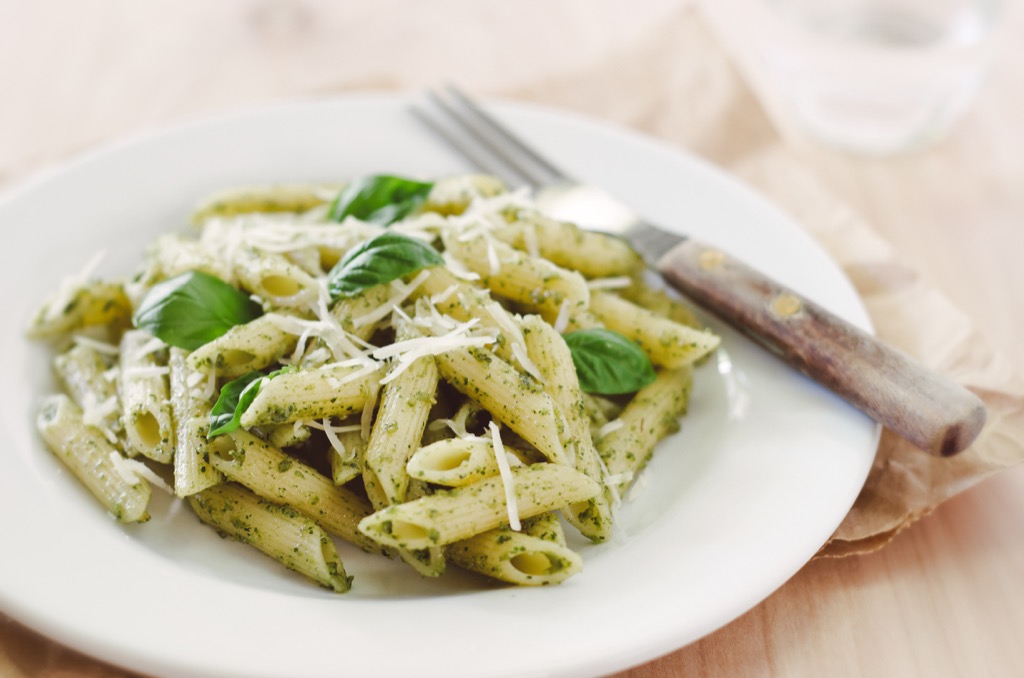
It’s easy to overshoot when portioning out pasta, so leftovers tend to be common. However, Melissa Baker, a nutritionist and the founder of foodqueries.com, a website dedicated to answering any and all questions related to food storage and spoilage, advises against freezing cooked pasta.
“The texture of pasta changes when frozen, becoming mushy and losing its chewy texture,” she says. This is especially true if your pasta was cooked for longer to begin with—al dente pasta may have a better chance at thawing without incident.
Better Homes and Gardens writes that if you do decide to freeze your cooked pasta, it’s best to store the sauce separately. That’s because the pasta and the sauce will thaw and reheat on different timetables, which could affect texture and taste.
2
Produce with a high water content.
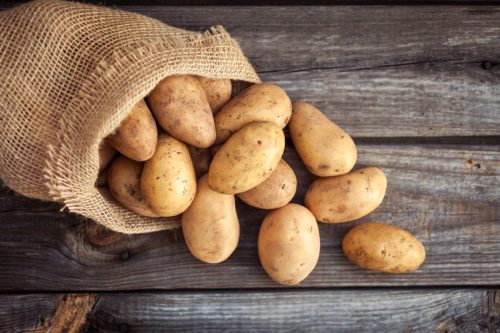
The next thing you should strike from your freezer is any fruit or vegetable with a high water content. This includes cucumbers, lettuce, watermelon, and more—all of which are likely to lose their crunchy texture after thawing.
Baker says that lettuce is especially likely to fare poorly in the freezer. “The high water content in these greens causes them to wilt and become mushy when frozen,” she tells Best Life.
Freezing lettuce intuitively feels like a bad idea, but high water content in some produce may also fly under your radar. For instance, freezing whole potatoes can cause them to become mushy due since they’re made up of 80 percent water, says Ethelyn Dietrich, a professional chef behind the website cookerquery.com.
READ THIS NEXT: Never Put Meat in the Fridge Without Doing This First, CDC Warns.
3
Fried foods.
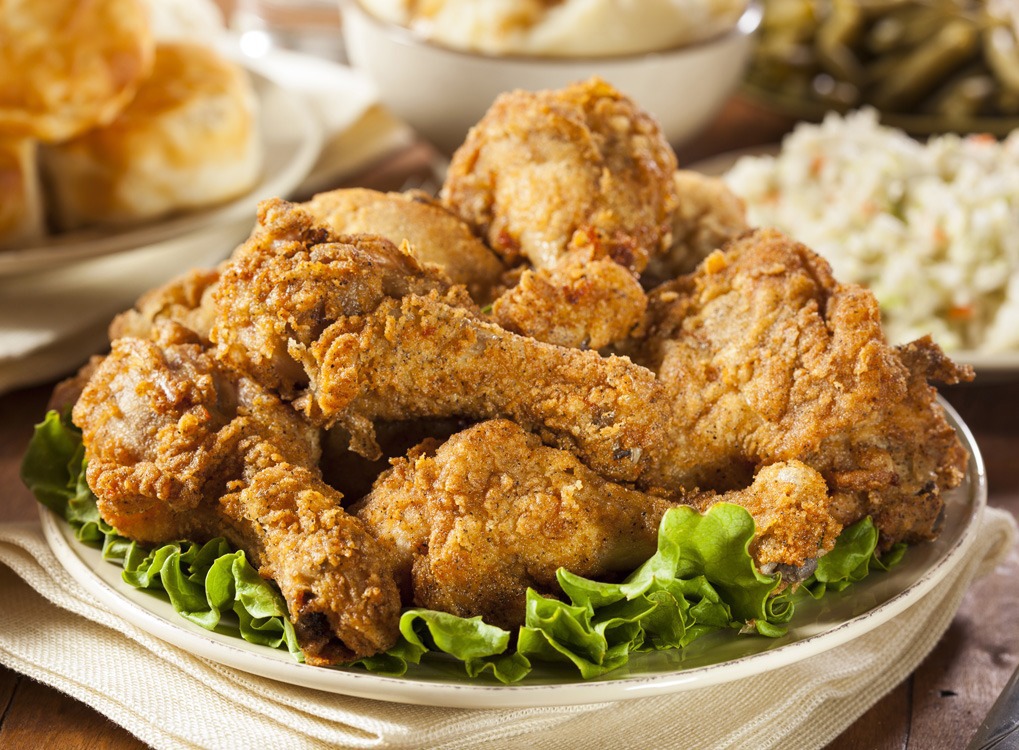
Fried foods can wind up becoming soggy after spending time in the freezer. “Fried foods have a crispy texture due to the oil content,” says Baker. “Freezing causes the oil to solidify, making the food lose its crispy texture.” You’re also likely to find that the taste after freezing is a far cry from the first time around.
For more health news sent directly to your inbox, sign up for our daily newsletter.
4
Previously defrosted meat.
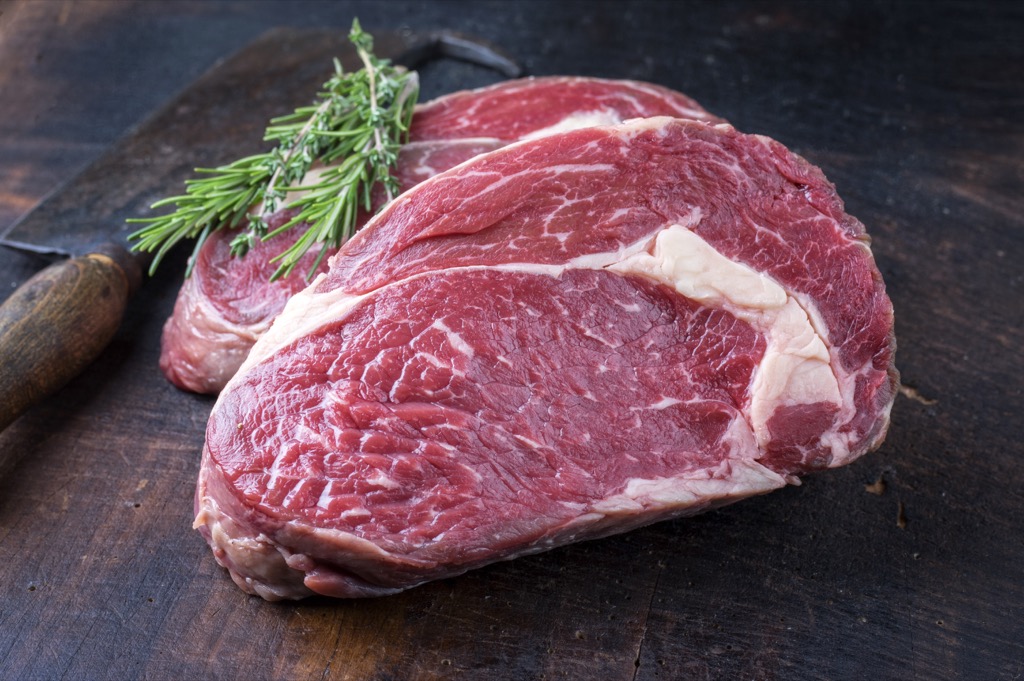
Freezing meat is a great way to make it last longer, especially if you’ve packaged everything correctly in an airtight (ideally vacuum-sealed) container. However, experts say that you should really only defrost meat once, since refreezing can alter the flavor, and give bacteria an opportunity to grow.
To thaw your meat, always move it from the freezer to the refrigerator to avoid the temperature dropping to dangerous lows on the counter. You’ll also want to inspect it for signs of spoilage after thawing, including freezer burn or excessive ice crystals, notable changes in texture or smell, and discoloration.
5
Eggs in their shells.
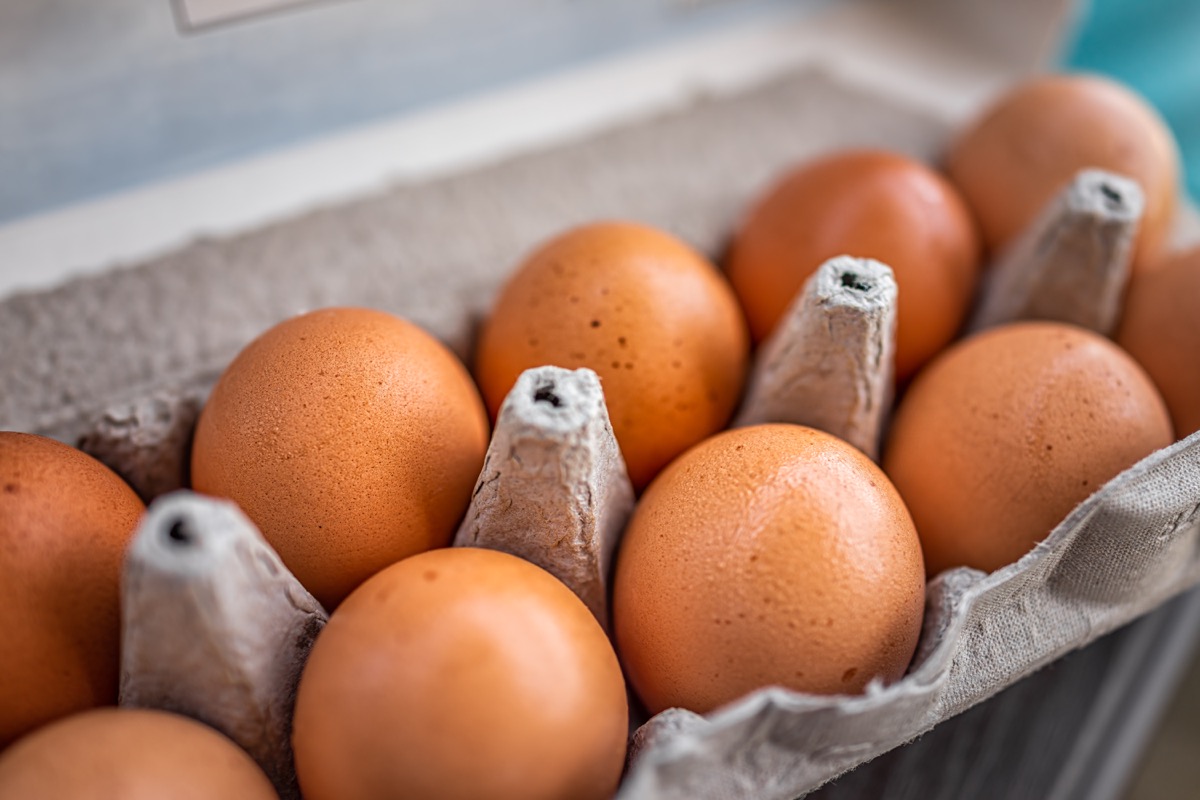
Freezing eggs in their shells is a bit like freezing a glass of water—as the liquid solidifies it expands, making it likely that its protective outer layer will shatter. Experts say that when an egg cracks open in the freezer, it will not only become inedible from a logistical standpoint, it can also cause bacterial contamination.
However, you can safely crack your eggs into an airtight container and freeze them until you’re ready to use them, according to the American Egg Board. You should either beat the yolks and whites together, or separate them for optimal texture.
6
Unwhipped cream.
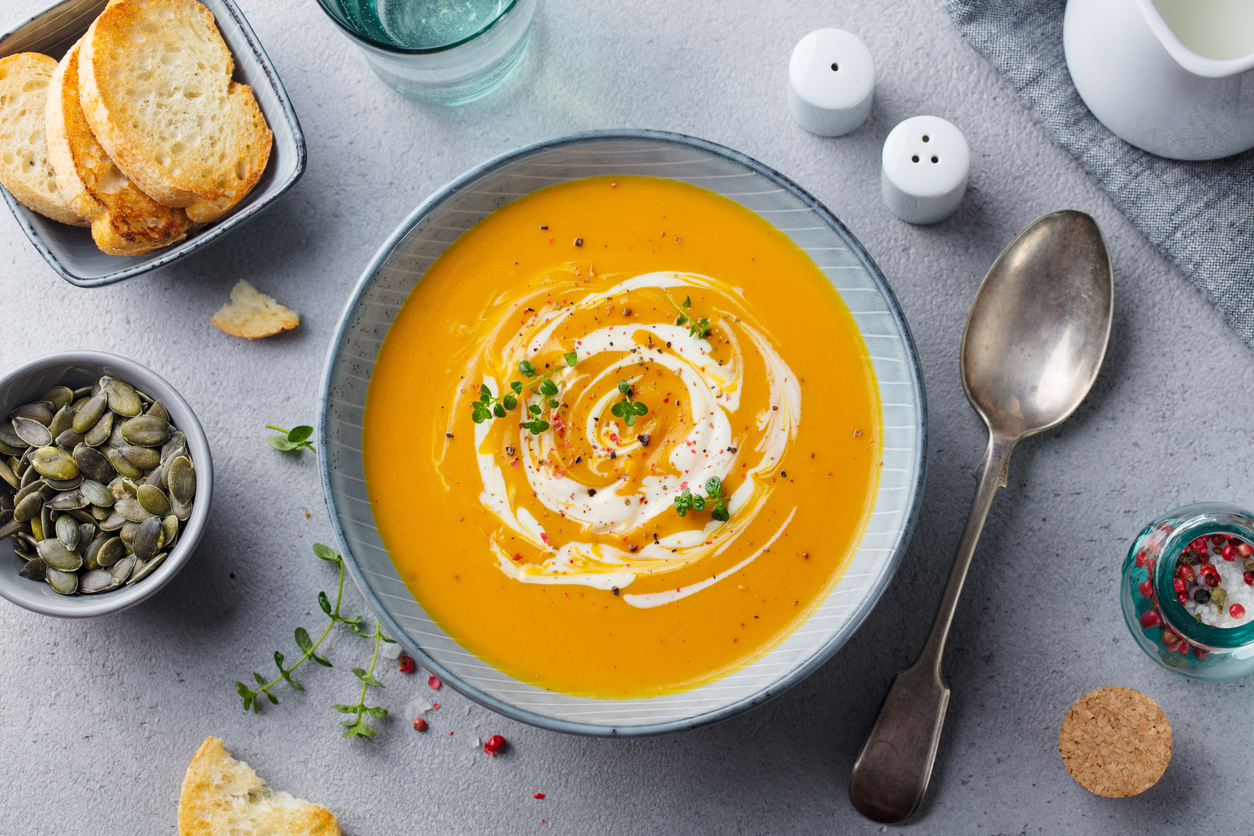
Many forms of dairy can technically be frozen—milk, hard cheeses, and yogurt, for example—but unwhipped cream is an exception. That’s because the freezing process destabilizes the cream, ultimately changing its texture after thawing.
Baker notes that this same rule applies when it comes to foods that are made with cream, such as sauces and soups. “The emulsion of cream and water in these sauces and soups can separate when frozen, resulting in a lumpy texture and an unappetizing appearance,” she tells Best Life.
7
Soft cheeses.
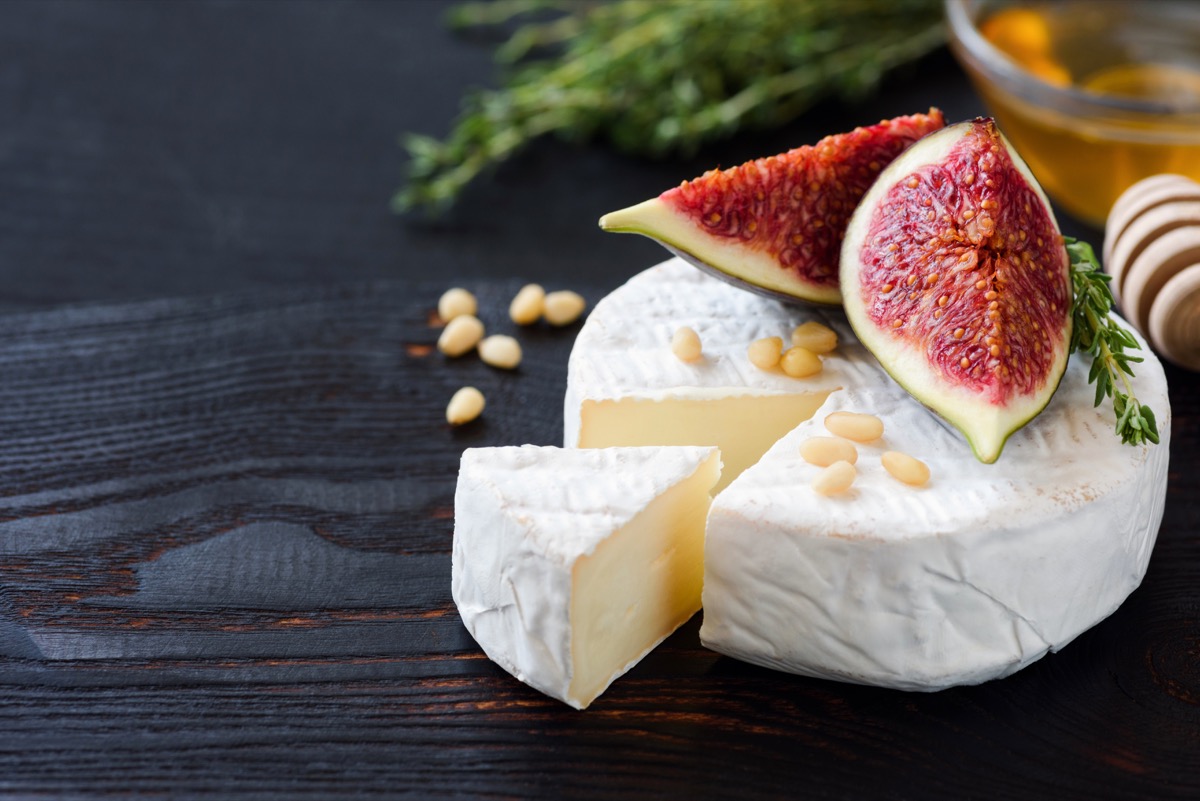
Large blocks of hard cheese tend to fare well in the freezer, especially when you freeze them in their unopened, original packaging. These types of cheeses should also last up to three months in the freezer if you reseal them after opening in an airtight bag.
However, freezing soft cheeses like brie and camembert can cause them to “become crumbly and lose their texture” as their molecular structure changes in the freezer, Dietrich says. Instead, it’s best to buy these foods in smaller portions, and to use them within days of purchase.